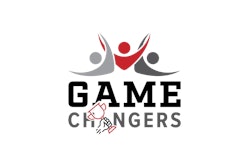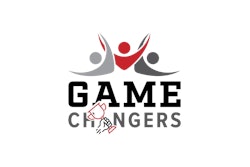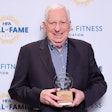At one point in time, when people were prepared for full-time employment, the first job they landed had the potential to be the only job they ever held.
Ambitious individuals may have bounced around, looking to get ahead but, generally speaking, workers remained employed at the same organization for years and years. They were comfortable, stable, happy to have work — and the organizations were happy to have people to work for them.
Heck, I went to a college where the football coach was in the role for more than 50 years, through both good times and bad.
That same coach wouldn’t have survived the dips in the road if he were working today. Times are changing.
Today, coaches and administrators who serve in their roles for 10 or 20+ years are few and far between. The issue cuts both ways. People want more, or to try something different, or to seek a new challenge. Institutions, meanwhile, may move away from their employees in ways they did not in the past. There are new demands to consider. Politics, tight budgets and social media mean that every detail of what a coach or administrator does can be put under a magnifying glass.
Today, there are many ways to find oneself out of a job.
 Alex Winnicker
Alex Winnicker
Unfortunately, I have seen this happen in my own career. When I was an assistant basketball coach, my head coach did not have his contract renewed because of a silly political dispute with the vice president. As an associate athletic director, my director — a friend — was dismissed in September, right at the beginning of the athletic calendar after 18 years on the job. Higher administration had a new vision and decided to go in a different direction. In my next role, I succeeded someone who was in the position for 15 years and asked to leave due to the poor performance of the department and some suspect accounting. There, I myself was laid off after a reorganization that eliminated several positions. The point is: I have some experience in this area!
So, what to do when the unexpected happens to you? Here is my personal nine-step program:
-
Realize you aren’t alone
-
Losing a job is scary and uncomfortable, but if it happens to you, try to relax. These things happen, and may happen more frequently to more people than you realize. If you talk to friends and acquaintances, odds are a few of them have gone through layoffs or been fired. If they can bounce back, chances are you can, too.
-
Step back
-
Take a moment to check in with yourself. What are your goals and ambitions? Realistically, where are you and where do you want to go? Check your ego and guard against delusions of grandeur. You may feel you deserve a certain level of attention, salary, recognition, etc., but be sure to be humble. Think about what you would and would not be willing to do, what really excites you, what you would love to pursue, and even logistics like whether you'd be able to move.
-
Reach out to your network
-
This can happen concurrently with the previous steps. In a rational way, without bad-mouthing or gossiping, let your network know what is going on in your career. As a free agent, your network should know that that you are open to new possibilities. Ask for a chance to talk or to get together with your network. Emphasize getting on the phone or scheduling an in-person meeting, as they tend to be more personal and effective than email communications. Be willing to get out there and travel to them to make it easier. Be open to what they have to say. Remember, you are just connecting, not necessarily looking for a job.
-
Make new connections
-
LinkedIn and other sites can be great resources for finding people to connect and have conversations with. Ask your current connections if they know of anyone else with whom you should speak. You are basically recruiting at this point. Your goal here is to find people who are willing to talk to you and offer their advice, no more. Be open to what they have to say. It bears repeating: you are just connecting, not looking for a job.
-
Search for a new beginning
-
Despite lower odds of landing a job, an online job search should be a priority. For athletics professionals, some places to look include NCAA.org, NJCAA.org, Higheredjobs.com, Hercjobs.org, NACDA.com, NAIS.org, and even Indeed.com. Websites for professional organizations, sport-specific groups, or particular levels such as Collegead.com, D3jobs.com and NABC.com are also good resources. The search will take time, but I’d suggest doing it on a weekly basis.
-
Volunteer
-
If you are stable enough financially, approach local institutions, schools and/or teams who could use your help and offer your services to them for free. Try to be of service in whatever way you feel like you can help — whether it be coaching, administrative work, or something else. Volunteering can help open doors to paid opportunities. You never know what connections your volunteer work may yield.
-
Write
-
If you’re into that sort of thing. This gets or keeps your name out there and you never know who is reading your blog post or article. Reach out to industry magazines and websites (like this one), and be sure to keep your LinkedIn profile up-to-date, as well as be active therein.
-
Speak
-
If you’re into that sort of thing. Start with connections and local professional organizations or schools. You can do this for free or for fee, but remember your goal is to create job leads not to become a professional speaker.
-
Take some time to enjoy
-
In-between the soul-searching and job-hunting, find some things you’ve been meaning to do, or things that you simply enjoy doing and find some time for them. Use this time wisely my friends, it will do you good in the long run.
Alex Winnicker, M.Ed., has worked in athletics since 2003. He has held roles as interim, associate and assistant athletic director at several NCAA Division III institutions throughout the Mid-Atlantic and New England, as well as been the director at a large non-profit health and wellness center in New Jersey. Alex entered the field of athletics through coaching basketball, where he attained positions as a head coach both at the high school and collegiate level before shifting to full-time higher administration. In addition, he has taught several college-level courses, including a Master's course in NCAA compliance. Currently, he is a leadership development consultant and coach specializing in the fields of athletics and higher education.




































